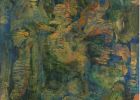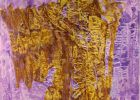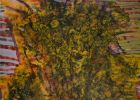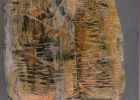Vilém Flusser’s Theories of Photography and Technical Images in a U.S. Art Historical Context
In the field of U.S. art history, the photography specialization is fairly new and the discourse is dominated by a handful of voices like Walter Benjamin and Roland Barthes, while Vilém Flusser has been virtually ignored. This essay examines the trilogy of “technical image” texts Flusser wrote in the 1980s—Towards a Philosophy of Photography (1983), Into the Universe of Technical Images (1985), and Does Writing Have a Future? (1987)—and beyond these, locating the seeds of Flusser’s “photophilosophy” in his use of information and communications theory to develop concepts like “image,” “apparatus,” “program,” and “information.” It considers the U.S. art historical bias toward writers like Jean Baudrillard, Paul Virilio, and the “control society” ethos of Gilles Deleuze and Flusser’s proposal that technical images and photography criticism could provide models for creative disruption of apparatus and finally, “human freedom.” Placed in the current moment, with its crises of environment, technology, economy, and geopolitics, this essay considers Flusser’s writing as a form of ethics and politics in which photography serves as a model for thinking about history, culture, revolution, and consciousness.
Aula em fluxo: arte, comunicação, educação
By exploring performance concepts, this article seeks to deepen and systematize epistemological, aesthetic, and technical matters related to the interfaces between communication, education and art. To this end, it calls upon transdisciplinary methodologies implicated in phenomenological research. It further seeks the ongoing integration between theoretical and technical experiences, as well as scientific methods and creative artistic processes.
On Creativity: Blue Dogs with Red Spots
Anke Finger’s short article addresses Flusser’s understanding and use of “creativity” and “art-making” and presents his writing for the US art journal artforum: 20 columns, published between 1986 and 1991. This excerpt is taken from the last chapter in the forthcoming, co-authored English-language introduction to Flusser, published by the University of Minnesota Press.
Dear Flusser – Dear Don. Letters from 1973 to 1983
The letter exchange between Vilém Flusser and Donald L. Stacy started in 1973 and ended in 1983. Intrigued by an article Flusser published in the US journal Main Currents of Modern Thoughts, Stacy started a conversation that proved influential for both participants. It lead to a friendship that was first only intellectually and later also emotionally engaging. By being a constant challenge to each other, the „author of words“ and the „painter of images“ enjoy disagreeing on art, knowledge, truth, reality, editing and friendship. Their discussion of the relationship between images and words is deeply intertwined and sometimes concurrent with a discussion of their personalities. Their self perception and perception of each other, together with their reflection on the friendship itself turn the whole conversation into a fascinating set of documents on personal and creative influences.
The Art of the Vampyroteuthis - Vilém Flusser, Vampyroteuthis infernalis: His Art
In this excerpt from his hybrid text of philosophical fiction, Vilém Flusser examines the history and future of human art and communication from the perspective of a giant deep-sea squid, the Vampyroteuthis infernalis. Fictionalizing some of the accepted biological details about the extant species of squid, Flusser oscillates between an encyclopedic description of the animal’s anatomical and behavioral characteristics and a cultural history of human art making. He proposes the world of the Vampyroteuthis as a model for human communication in the age of television, film and digital images. With his skill for de-familiarizing everyday aspects of human life, Flusser holds the molluscan creature up to his reader as a mirror in which human behavior can be considered from an opposing, almost inhuman perspective.
Dialogues Between Flusser and Young Media Artists: A Conversation with Mario Ramiro
This article focuses upon Flusser’s interest in the work of young media artists, largely based on the recollections of Mario Ramiro, a São Paulo artist who holds a master’s degree from the Kunsthochschule für Medien in Cologne. Ramiro talks about how he met Flusser in São Paulo in the late 1970s and was immediately taken by the philosopher’s ideas and style, which for him were that of an artist. He acknowledges Flusser’s influence and support for his career throughout the 1980s.
Interview avec Fred Forest / Entrevista com Fred Forest
This conversation about Vilém Flusser, between new media art critic Annick Bureaud and media artist Fred Forest, took place in Paris on December 22, 2008. Forest is a pioneer of video, media and network art whose actions and interventions establish pauses and disruptions in the usual flow of communication. His works are frequently critical, often humorous and on occasion insolent. Forest also writes and theorizes his own artistic creations besides maintaining a constant dialogue with philosophers and theorists. Flusser was one of those with whom intellectual exchange was always densely rich, productive and collaborative. In this interview, Forest speaks about some of his video projects developed with Flusser, as well as his news media and public interventions in the 1973 São Paulo Bienal, for which Flusser served as curator. Bureaud and Forest’s conversation bring to life the energy and more human, intersubjective exchanges that characterized the Forest-Flusser friendship, and which are seminal to both artistic creation and intellectual thought. Bureaud insightfully points out that unfortunately such vivid encounters are rarely found in scholarly research and in the history of art. In the hands of Forest and Flusser though, often overlooked gestures, shared for instance in a seemingly banal conversation on a summer afternoon or on a subway ride in Paris, become fully meaningful.
Pages
- « first
- ‹ previous
- 1
- 2
- 3




![Grande queda © Mario Ramiro. Grande Queda [Big Fall] and Queda Magenta [Magenta Fall] are ‘Schlieren’ photographs (color Lasergrams), 140 x 110 cm each, 1995. This series of Lasergrams titled 'Light Turbulences' reveals symbolic images of bodies in movement, rising and falling amidst flames. The photographic images are not records of something invisible to the eye. They are means for the construction of a subjective narrative. Heat is not just represented as propagating waves, it reacquires the primordial and dualistic value of the element of fire: the fire of purification, the flame of life or as the fire of punishment, the blaze of destruction.](https://flusserstudies.net/sites/www.flusserstudies.net/files/styles/article_first/public/media/images/ramiro-grande-queda.jpg?itok=Ys4y8AK2)
![Queda magenta © Mario Ramiro. Grande Queda [Big Fall] and Queda Magenta [Magenta Fall] are ‘Schlieren’ photographs (color Lasergrams), 140 x 110 cm each, 1995. This series of Lasergrams titled 'Light Turbulences' reveals symbolic images of bodies in movement, rising and falling amidst flames. The photographic images are not records of something invisible to the eye. They are means for the construction of a subjective narrative. Heat is not just represented as propagating waves, it reacquires the primordial and dualistic value of the element of fire: the fire of purification, the flame of life or as the fire of punishment, the blaze of destruction.](https://flusserstudies.net/sites/www.flusserstudies.net/files/styles/article_first/public/media/images/ramiro-queda-magenta.jpg?itok=PVWZ5C70)
![Sich bügeln © Mario Ramiro. Sich bügeln, [from the German ‘bügeln’, to iron laundry, Ironing, smoothing oneself] and Es brennt, [It’s on fire] are Schlieren video stills. These videos are about two or three minutes each and were produced at the KHM, 1996-97.](https://flusserstudies.net/sites/www.flusserstudies.net/files/styles/article_first/public/media/images/ramiro-sich-bugeln.jpg?itok=AZzJmbS1)
![Es brennt © Mario Ramiro. Sich bügeln, [from the German ‘bügeln’, to iron laundry, Ironing, smoothing oneself] and Es brennt, [It’s on fire] are Schlieren video stills. These videos are about two or three minutes each and were produced at the KHM, 1996-97.](https://flusserstudies.net/sites/www.flusserstudies.net/files/styles/article_first/public/media/images/ramiro-es-brennt.jpg?itok=Cp2WEVWu)